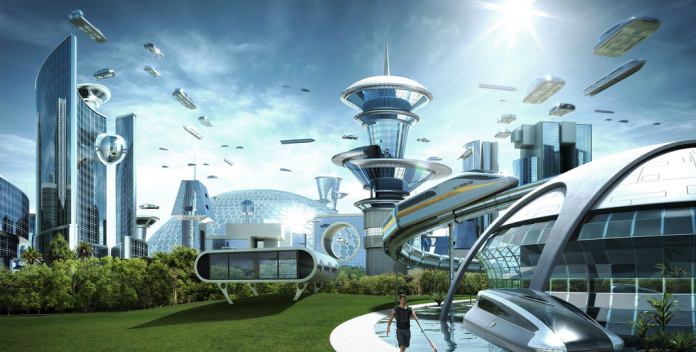In today’s rapidly evolving world, technology continues to push boundaries and redefine what is possible. But when it comes to the most advanced technology, which innovation takes the top spot? From artificial intelligence to quantum computing, the possibilities are seemingly endless.
Exploring the realm of advanced technology can leave us astounded and curious about what lies ahead. In this article, we delve into the realm of cutting-edge advancements and discuss what truly qualifies as the most advanced technology in today’s world.
As we navigate through the digital age, it’s important to stay informed about the latest breakthroughs and understand how they impact our lives. Whether it’s self-driving cars revolutionizing the transportation industry, or the potential of genetic engineering in healthcare, the most advanced technology is continuously shaping our future.
Join us as we examine the frontiers of innovation and awe-inspiring discoveries, and discover which technology stands tall as the most advanced of them all. Get ready to be amazed by the incredible feats of human ingenuity and the limitless possibilities that lie within the world of advanced technology.
The evolution of technology
Technology has come a long way since the invention of the wheel. Over the centuries, humans have continuously pushed the boundaries of what is possible, leading to remarkable advancements in various fields. From the Industrial Revolution to the digital age, technology has transformed the way we live, work, and communicate. The evolution of technology has been driven by a desire to improve efficiency, convenience, and quality of life. Today, we stand at the forefront of a new era, where cutting-edge innovations are reshaping our world at an unprecedented pace.
The most advanced technologies of today
In the realm of advanced technology, several innovations stand out for their groundbreaking capabilities. These technologies have the potential to revolutionize industries, enhance human capabilities, and solve complex problems. Let’s explore some of the most advanced technologies of today.
Artificial Intelligence (AI)
Artificial Intelligence, or AI, is a field of computer science that aims to create intelligent machines capable of performing tasks that typically require human intelligence. AI systems can analyze vast amounts of data, learn from patterns, and make decisions or predictions based on that information. From voice assistants like Siri and Alexa to self-driving cars and facial recognition technology, AI is already a significant part of our lives. The potential applications of AI are immense, ranging from healthcare and finance to transportation and entertainment. As AI continues to advance, it holds the promise of transforming industries and improving efficiency across various sectors.
Internet of Things (IoT)
The Internet of Things, or IoT, refers to the network of interconnected devices that can communicate and exchange data with each other over the Internet. From smart home devices like thermostats and security cameras to industrial sensors and wearable technology, IoT has the potential to revolutionize the way we interact with our environment. By enabling devices to collect and share data, IoT can enhance automation, improve efficiency, and create new opportunities for businesses and individuals. With the increasing number of connected devices and advancements in connectivity technology, the potential of IoT is only beginning to be fully realized.
Virtual Reality (VR) and Augmented Reality (AR)
Virtual Reality (VR) and Augmented Reality (AR) are immersive technologies that allow users to experience virtual worlds or overlay digital information onto the real world. VR typically involves wearing a headset that transports users to a computer-generated environment, while AR enhances the real world by adding digital elements through a device like a smartphone or smart glasses. These technologies have applications in various industries, from gaming and entertainment to education and training. VR and AR have the potential to revolutionize how we experience and interact with digital content, opening up new possibilities for storytelling, communication, and problem-solving.
Blockchain technology
Blockchain technology is a decentralized and transparent system for recording and verifying transactions. It is most commonly associated with cryptocurrencies like Bitcoin, but its potential goes beyond digital currencies. Blockchain technology can create secure and tamper-proof digital records, making it suitable for applications such as supply chain management, voting systems, and identity verification. By eliminating the need for intermediaries and providing a high level of security, blockchain technology has the potential to disrupt traditional industries and enable new forms of trust and collaboration.
Quantum computing
Quantum computing is a field of study that focuses on developing computers capable of performing complex calculations at an unprecedented speed. Unlike classical computers that use bits to represent information as either 0 or 1, quantum computers use quantum bits, or qubits, which can exist in multiple states simultaneously. This parallelism allows quantum computers to solve certain problems exponentially faster than classical computers. While still in its early stages, quantum computing has the potential to revolutionize fields such as cryptography, optimization, and drug discovery. As researchers continue to make breakthroughs in the development of quantum computers, the possibilities for this advanced technology are truly mind-boggling.
Impacts and applications of advanced technology
The impacts and applications of advanced technology are far-reaching and have the potential to shape our future in profound ways. From improving healthcare outcomes and revolutionizing transportation to enhancing the efficiency of industries and enabling new forms of communication, advanced technology holds immense promise. However, it also raises ethical and societal concerns that need to be carefully addressed. As we embrace these advancements, it is crucial to ensure that they are used responsibly and for the benefit of humanity. By understanding and harnessing the power of advanced technology, we can navigate the challenges and opportunities that lie ahead.
Conclusion: The future of advanced technology
As we conclude our exploration of the most advanced technology, it is clear that we are living in an era of unprecedented innovation. The advancements we have discussed are just the tip of the iceberg, as scientists, engineers, and visionaries continue to push the boundaries of what is possible. The future of advanced technology holds immense potential, but it also comes with challenges and responsibilities. As we navigate this rapidly evolving landscape, it is crucial to stay informed, engage in critical conversations, and ensure that these technologies are used for the greater good. By embracing the most advanced technology with a sense of wonder and responsibility, we can shape a future that is both exciting and sustainable.
Get ready to be amazed by the incredible feats of human ingenuity and the limitless possibilities that lie within the world of advanced technology. The journey into the future has only just begun, and the most advanced technology awaits us with its awe-inspiring discoveries and transformative potential.













